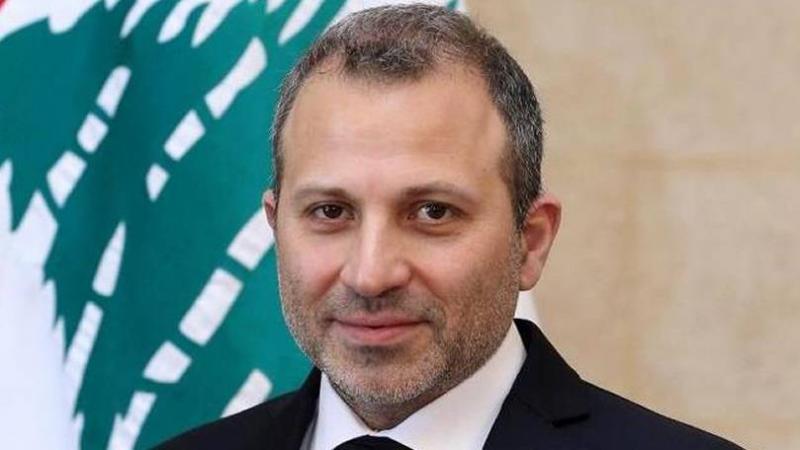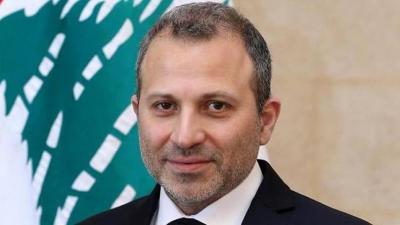There is no news on the presidential front, and aside from meetings, communications, and attempts at showboating to achieve some breakthrough, it is merely playing for time or a diversion from accusations of obstruction. Speaker of Parliament Nabih Berri does not show a desire to bring attention to a Parliament incapable of electing a new president, as its electoral sessions turn into tedious, pointless bidding wars that provoke public outrage. However, he will not accept being blamed for the obstruction if he refrains from calling the Parliament to a session that is predetermined to fail, and he is expected not to wait long before scheduling a new date for the electoral session, even if he is certain, like the other parties, that it will be a carbon copy of previous ones.
In the meantime, Head of the "Strong Lebanon Bloc" Gebran Bassil tried to fill the void with some public and private meetings, attempting to convince public opinion that he is not a mere spectator to the vacancy and the paralysis controlling the presidential track, claiming innocence from the ongoing obstruction likely to prolong itself as long as no comprehensive agreement is in sight. Naturally, Bassil's movements would not have taken on a different character without a fundamental disagreement between him and "Hezbollah," which superficially concerned the sessions of the caretaker government and their constitutionality, but fundamentally reflects a significant shift in Hezbollah's behavior toward its Aouni ally.
This shift has stirred Bassil's displeasure, pushing him to a point where he questioned the credibility of the "party" and its Secretary-General, although he later clarified that this skepticism does not extend to Secretary-General Sayyed Hassan Nasrallah. Nevertheless, this is the first time the disagreement between the allies has reached such a level, forcing the "party" to respond through Nasrallah, affirming that it would not withdraw its hand from its ally, but it would not prevent the latter from doing so if it deemed its interests necessary.
In reality, the disagreement goes deeper than the issue raised by the caretaker government session, and deeper than Hezbollah's support for the candidacy of "Marada Movement" leader Sleiman Frangieh. The presidential entitlement constitutes a complex point in their bilateral relationship. In this sense, Bassil decided to break away from his allies' consensus by voting via a blank ballot to adopt a new candidate, thereby hoping to establish a distinct path for the "Strong Lebanon Bloc" that first protects it from the charge of obstruction and helps, conversely, to exclude Frangieh and Army Commander General Joseph Aoun from the presidential equation if possible.
Thus, news circulated about the "Strong Lebanon Bloc's" intention to discuss this matter during its regular meeting, which is expected to take place tomorrow, Tuesday, after many bloc members voted in the last electoral session with a ballot expressing "national covenant," with only a rare few breaking from this choice. In reality, the Aouni MPs will enter the meeting without knowing what Bassil has in mind. He has never approached them with any serious candidacy. He insists in every meeting on two points: no to Frangieh's candidacy and no to endorsing Joseph Aoun's candidacy. Beyond that, he confirms to them that he has not put forward any alternative candidacies in all the meetings and gatherings he holds, even if the news reaching them suggests otherwise.
What they have recently heard is that he intends to propose three candidacies: Ziad Baroud, Jihad Azour, and Pierre Daher, with one of them expected to be nominated in the next session. Why these individuals and not others? There is no clear answer.
It is certain that the notion of adopting a candidate from the "Strong Lebanon Bloc" is not yet mature, and there are many obstacles to it. The first of those obstacles is the objection of some members of the bloc, especially the Aounis, to Bassil's opposition to proposing the candidacy of one of the "Free Patriotic Movement" MPs. He reasserted in his last interview that "in the movement, they understand this issue well, and they will not allow it to be manipulated. Any talk of this nature is not serious." It seems likely that he will hear similar sentiments from some dissenters regarding the candidacy of one of the trio whose names are circulating.
More importantly, this proposition remains a plan without a strategy, as none of these names has made a breakthrough among other blocs, whether from the Shiite duo or the opposition, due to the blockage preventing any of them from ascending the candidacy ladder, making the candidacy of one of them merely a forward escape in an effort to exit a state of stagnation.
Endorsing one of these three individuals would mean committing to them and working to market them, otherwise, their nomination would merely serve to undermine them. Yet, it does not appear that there is a comprehensive plan to proceed with any of these candidacies. For this reason, reaching an agreement on a candidate during Tuesday's meeting may not be guaranteed, even if Bassil requests that. Even if that were to happen, there does not seem to be a clear vision for marketing this candidate to achieve a significant breakthrough… nor is it certain that he will receive all the votes of the bloc.




